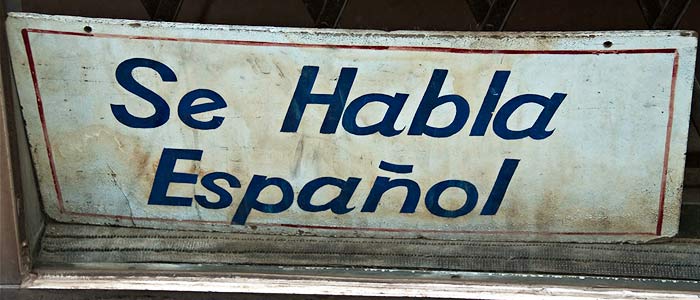I came to Costa Rica confident that learning to speak the Spanish language on a somewhat fluent level would be difficult, but not impossible. It’s certainly not impossible, and I will get there so help me God, but I think I may have been a bit over confident.
Why in the world would I be over confident?
Well, I had studied the language for six years in school and had even made it to college-level Spanish. Impressive right? No. It turns out that it is not as impressive as I had thought.
The last three weeks have been incredibly humbling, as I’ve tried to set up cell phone numbers, order food, buy cheap beer, and establish friendships. All of these experiences have opened my eyes to something very interesting and a little scary; many of those incredibly enlightening 6 years of Spanish training may have actually done me a huge disservice.
While I fumble around with conjugations and tenses in my head (as I was taught to do), my fellow travelers with no Spanish background go balls to the wall (excuse my language). There isn’t a hesitation or a second thought regarding preterite or imperfect while in conversation. They just say what they know, which is usually the present tense all of the time! BUT guess what? They are far closer to fluency than I am. While I unlearn the instinct to correctly conjugate every verb (which takes me long enough to miss out on an entire conversation), they are speaking, making mistakes, practicing and as a result, learning correct tenses and conjugations.
Throughout my schooling all of my basic Spanish classes emphasized grammar and verb conjugation. All of these classes were taught in English. This means I missed out on roughly four solid years of actually speaking the language and hearing it fluently and frequently. I strongly believe that American school systems need to focus less on grammar and tenses and more on speaking and developing the student’s ear for the language. I also believe that NO Spanish class should be taught in English because immersion and practice are the key components to learning any foreign language!
SO, are you worried about visiting Costa Rica (or any other Spanish speaking country) because you don’t know a lick of Spanish? You may actually be at an advantage. The best thing you can do for yourself is to come, speak, listen and make mistakes.
Think of Costa Rica as the biggest and best Spanish class you could ever have; a class only taught in Spanish with an emphasis in simply speaking the language! Tropical Adventures can help provide you with an atmosphere where you can practice your Spanish safely and comfortably. There are many great classes that can go hand-in-hand with your full immersion! Join me in this adventure!
By: Chelsey Reardon
